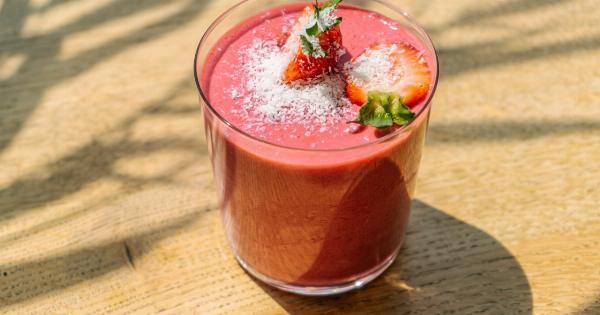Showering is an essential part of our daily routine. It not only helps us maintain proper hygiene but also allows us to relax and rejuvenate.
While most people prefer showers with warm water, there are some who enjoy the invigorating sensation of a cold shower. Both hot and cold showers have their own set of benefits and can offer unique experiences. Let’s explore the advantages of taking a hot shower and a cold shower.
The Benefits of Taking a Hot Shower
1. Relaxation: A hot shower can be incredibly calming and soothing. The warm water helps to relax your muscles and relieve any tension or stress you may be feeling. This can be particularly beneficial after a long, tiring day.
2. Improved Blood Circulation: The heat from a hot shower causes your blood vessels to expand, leading to improved blood circulation throughout your body. This can help to reduce muscle soreness and promote healing.
3. Clear Nasal Passages: If you’re suffering from congestion or a stuffy nose, a hot shower can do wonders for clearing your nasal passages. The steam from the shower helps to open up your sinuses and relieve congestion.
4. Cleanses the Skin: Hot water helps to open up your pores, allowing for a deeper cleanse. It can loosen dirt, oil, and dead skin cells, leaving your skin feeling refreshed and rejuvenated.
5. Relieves Sore Muscles: Whether it’s from an intense workout or a long day of physical activity, hot showers can provide relief to sore muscles. The heat helps to relax the muscles, reduce inflammation, and alleviate pain.
6. Stress Relief: The warmth of a hot shower triggers the release of endorphins, which are known as “feel-good” hormones. These endorphins can help to reduce stress and promote feelings of happiness and relaxation.
7. Aids Sleep: Taking a hot shower before bed can help to improve the quality of your sleep. The relaxation and stress-relief benefits mentioned earlier can contribute to a more peaceful and restful night’s sleep.
8. Reduces Headaches: If you’re experiencing a tension headache or migraine, a hot shower can help to alleviate the pain. The warmth can relax the muscles in your neck and head, providing relief from the throbbing sensation.
9. Enhances Skin Health: Hot showers can be beneficial for people with certain skin conditions, such as eczema. The heat can help to soothe itchiness and inflammation, providing temporary relief.
10. Promotes Mindfulness: Taking a hot shower can be a great opportunity for self-care and reflection. It allows you to slow down, disconnect from distractions, and focus on the present moment.
The Benefits of Taking a Cold Shower
1. Increased Alertness: Cold showers can provide an immediate jolt of energy and wakefulness. The cold water stimulates your body, increases your heart rate, and enhances overall alertness.
2. Improved Mood: Cold showers have been shown to activate the sympathetic nervous system and increase the release of noradrenaline, which can help to uplift your mood and alleviate symptoms of depression.
3. Relieves Muscle Soreness: Just as hot showers can relieve sore muscles, cold showers can also be effective in reducing muscle inflammation and providing pain relief.
Cold water helps to reduce swelling and numbs the area, offering a natural analgesic effect.
4. Boosts Metabolism: Cold showers can help to stimulate the brown fat in your body, leading to an increase in metabolism. This can aid in weight loss or weight management efforts.
5. Improves Skin and Hair Health: While hot showers may strip away natural oils from your skin and hair, cold showers have the opposite effect. Cold water can tighten your pores and cuticles, leaving your skin and hair looking healthier and more vibrant.
6. Enhances Immune Function: Exposure to cold water can boost your immune system by increasing the production of white blood cells. This can help to improve your body’s ability to fight off infections and diseases.
7. Increases Resilience to Stress: Cold showers are believed to have a hormetic effect, meaning they subject your body to mild stress, which in turn helps to build resilience to more significant stressors.
It’s a form of controlled exposure to discomfort, training your body to adapt and handle stress better.
8. Speeds Up Recovery: After intense physical activity or a strenuous workout, taking a cold shower can aid in reducing muscle inflammation and promoting faster recovery.
The cold water constricts blood vessels, which helps to flush out lactic acid and reduce swelling.
9. Tightens Pores: If you struggle with large or clogged pores, cold showers can be beneficial. The cold water causes your pores to constrict, minimizing their appearance and reducing the risk of blackheads and breakouts.
10. Increases Willpower and Emotional Resilience: Taking a cold shower can require mental strength and discipline, fostering a sense of willpower and emotional resilience.
It can serve as a daily practice to face discomfort head-on and build mental toughness.
Conclusion
Whether you prefer the soothing warmth of a hot shower or the invigorating chill of a cold shower, both have their own array of benefits.
While a hot shower promotes relaxation, improved blood circulation, and stress relief, a cold shower offers increased alertness, mood enhancement, and resilience to stress. It ultimately comes down to personal preference and what you hope to achieve from your shower experience. Feel free to experiment with both and see which one works best for you.
Remember, the most important thing is to enjoy your shower and take a moment to indulge in self-care.































